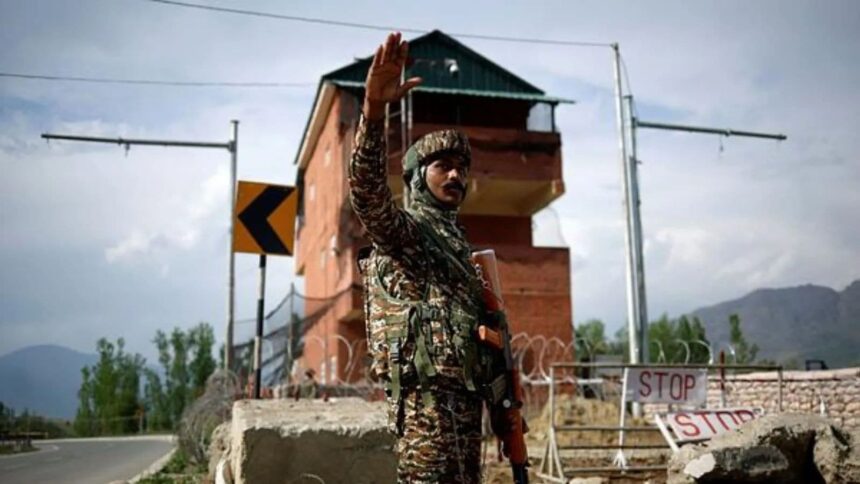AS PART of its escalatory matrix against Pakistan for the terror attack in Pahalgam on April 22, India is considering two specific moves aimed at curbing financial flows that aid the neighbour fund terror activities.
The first is to make a concerted effort to try and bring back Pakistan into the ‘grey list’ of Financial Action Task Force (FATF), the global money laundering and terror financing watchdog, two people in the know told .
Pakistan was put in the ‘grey list’ in June 2018, and faced “increased monitoring” till it was removed in October 2022. Being in this list adversely impacts FDI and capital flows as businesses have to undertake enhanced due diligence. Government officials said this had helped curtail illicit fund flows from Pakistan into India, especially into J&K.
The second is to raise objections to the International Monetary Fund’s (IMF’s) continued financing of a $7-billion aid package that commenced July 2024, citing diversion of funds by Pakistan for nefarious activities and terror attacks, people in the know said.
To initiate a nomination process demanding a ‘grey list’ status for Pakistan, India would require the support of other FATF member countries. “There has been a discussion on the steps that could be taken on the financial front. Demanding a ‘grey list’ for Pakistan at the FATF is on the table. But there is a nomination process in FATF and members can ask for taking up the matter, that can be approved by the Plenary,” an official in the know of developments said.
The plenary is the decision-making body of the FATF, which meets three times a year, usually in February, June and October. The nomination will be based on specific money laundering, terrorist financing (TF), or proliferation financing risks or threats faced by a country.
The FATF has 40 members, and over 200 jurisdictions have committed to the FATF recommendations through the FATF-Style Regional Bodies. New has its task cut out since it would have to rally adequate support among member countries for a move of this nature. A gauge of this support comes from the condolence messages New Delhi received from as many as 23 FATF member countries, including the UK, the US, France, Germany, Australia, European Commission, and Gulf Cooperation Council heavyweights such as Saudi Arabia and the UAE.
Pakistan is not a member of FATF, but of Asia Pacific Group on Money Laundering (APG), the largest FATF-Style Regional Body. India is a member of APG as well as of the FATF.
India is also considering raising objections against Pakistan at the upcoming meeting of the board of the International Monetary Fund (IMF) in May. In July 2024, the IMF had reached a three-year, $7 billion aid package deal with Pakistan. The ongoing 37-month long Extended Fund Facility (EFF) programme of the IMF consists of six reviews over the life of the bailout, and the release of the next tranche of approximately $1 billion will be contingent on the success of the performance review. India is likely to raise objections citing diversion of funds by Pakistan nefarious activities and terror attacks, people in the know said.
Queries sent by The Indian Express to IMF and the Ministry of Finance did not elicit a response.
When it was removed from the ‘grey list’, New Delhi had said Pakistan had been forced to take some action against well-known terrorists, including those involved in attacks against the entire international community in on 26/11. It had also said that it was in “global interest that the world remains clear that Pakistan must continue to take credible, verifiable, irreversible and sustained action against terrorism and terrorist financing emanating from territories under its control”.
THE move on FATF is the latest in a raft of measures taken by India against Pakistan following the terror attack in Pahalgam. It also directly confronts the spectre of cross-border terror and aims to strike at its financial sources. The next step would be to rally support within the task force — 23 of the 40 members had sent condolence messages over the attack that killed 26 people.
For India, the FATF had flagged the risk from terrorist groups for India in its mutual evaluation report in September 2024. The “most significant” terror threats seem to be related to the Islamic State or al-Qaeda linked groups active in and around and Kashmir, the report had said.
The FATF has outlined a framework of measures to help countries tackle illicit financial flows. These are listed as 40 Recommendations that are divided into seven distinct areas: (1) AML/CFT Policies and coordination, (2) Money laundering and confiscation, (3) Terrorist financing and financing of proliferation, (4) Preventive measures, (5) Transparency and beneficial ownership of legal persons and arrangements, (6) Powers and responsibilities of competent authorities and other institutional measures, (7) International cooperation.
The FATF monitors countries to ensure they implement the FATF standards fully and effectively. FATF mutual evaluations are in-depth country reports that analyse the implementation and effectiveness of measures taken against money laundering, terrorist and proliferation financing.
The reports are peer reviews, where members from different countries assess another country. After an analysis of a country’s anti-money laundering and counter-terrorist financing system, mutual evaluations give recommendations to further strengthen a country’s system.








